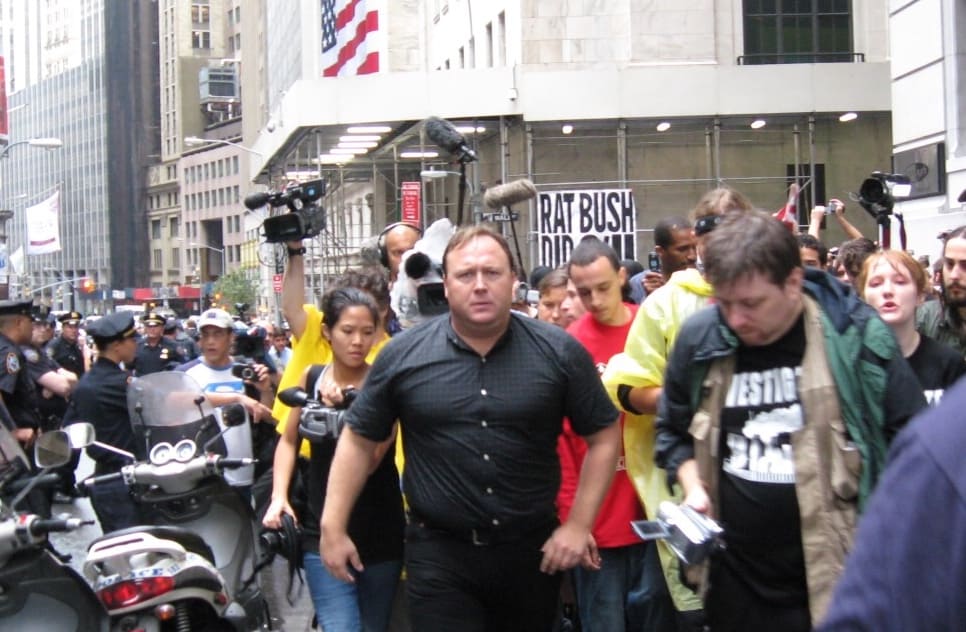Apple’s decision to boot five of far-right conspiracy theory website InfoWars’ podcasts off its platform was the trigger for Facebook doing the same with several of host Alex Jones’ pages on the social network.
The factoid was revealed in a new profile of Facebook CEO Mark Zuckerberg, published in the New Yorker. Apple has since banned Jones from the App Store permanently.
According to a timeline laid out in the New Yorker piece, Facebook took an early proactive step of removing four of Jones’ videos and suspending him for a month in late July. A few days later, however, the “dam broke” after Apple made the decision to ban multiple InfoWars podcasts. This was done on the grounds that, “Apple does not tolerate hate speech.”
At this point, Zuckerberg decided to follow suit by removing the relevant Alex Jones pages from its service. “When [Apple] moved, it was, like, O.K., we shouldn’t just be sitting on this content and these enforcement decisions,” he said. “We should move on what we know violates the policy. We need to make a decision now.”
Silicon Valley vs. Alex Jones
Apple and Facebook aren’t the only two tech giants to have banned Alex Jones. The Google-owned YouTube also removed his channels, while Twitter has also taken similar steps.
This has led Jones and others in support of him to accuse Silicon Valley of working together to censor him: pointing to how quickly everything happened as a sign of collusion between the companies. However, the New Yorker story suggests this was less a coordinated effort and more a case of tech companies playing “follow the leader” — with the leader, in this case, being Apple.
In the aftermath of the 2016 presidential election, there has been enormous pressure on Silicon Valley to crack down on the spread of so-called “fake news” online. In June, Amazon, Apple, Google, Facebook, Microsoft, Snap, Twitter and other tech companies met with members of the U.S. intelligence community to discuss this subject.


